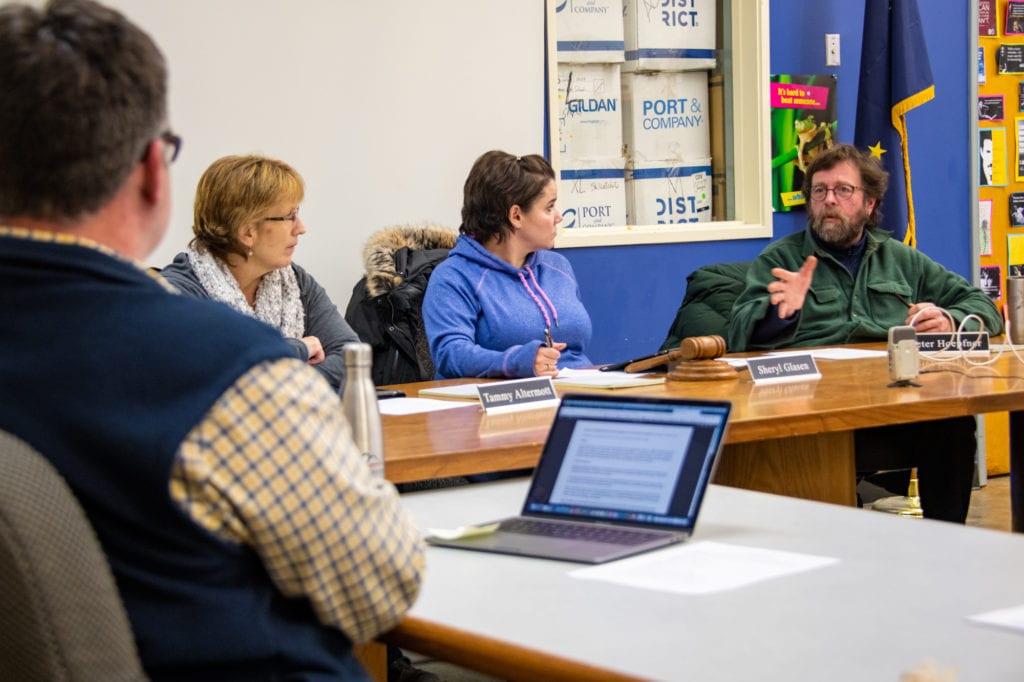
A new policy under consideration by the Cordova School Board outlines how staff may interact with students online. The policy was approved on first read by the board at a Jan. 8 meeting. The policy will be raised for final approval at the board’s Feb. 12 meeting.
The policy devotes attention to electronic communication, prohibiting teachers, coaches or volunteers from communicating privately with students online, unless that student is the staff member’s own child.
“It’s not meant to be an accusatory policy,” Superintendent Alex Russin said. “We’re not adopting the policy because we believe we have a problem that exists. But policies like this will help to avert potential problems that we might see, because everybody will be aware and everybody will be knowledgeable.”
Alaska has led the nation in establishing such rules of conduct for teachers, Russin said.
The policy also identifies other boundary-violating staff behaviors such as giving gifts or money to a particular student, or engaging in peer-like behavior, such as “hanging out,” with a student. A more granular breakdown of designated inappropriate behaviors is provided for coaches, where greater physical contact between teacher and student is necessary.
The policy is intended to take into account the close-knit social structure of Cordova, a community where many staff have pre-existing familial or social relationships with students. The policy urges staff with such “dual relationships” to proactively disclose them to administrators. Even if a student is the relative of a staff member, staff are required to observe these boundaries while acting in a professional role.
“Even in small communities where everyone knows everyone and school employees may be related to some of their students, these principles of professional relationships with students apply whenever adults are on the job,” reads a Cordova School District training document.
Staff would also receive training on the professional boundaries established by the new policy. Identifying these boundary violations would prevent most instances of sexual misconduct by educators against students, according to board documents.
“I appreciate that this is lined out ahead of time,” said board member Sheryl Glasen. “We don’t see an issue, but we don’t want to wait until there is something to react to.”





